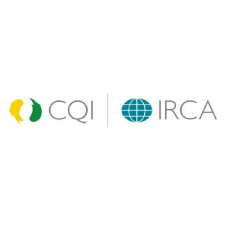Food Safety Definition - Safeguarding Consumers Through Proper Handling Food safety is a critical aspect of the food industry that focuses on the handling, preparation, and storage of food to prevent contamination and ensure the safety of consumers. Understanding the definition of food safety and adhering to best practices is essential for maintaining high standards of hygiene and protecting public health. At Redhatsafety, we emphasize the importance of food safety in all aspects of food handling and preparation.

–
Food safety encompasses the measures and practices implemented to ensure that food is safe for consumption by minimizing the risks of foodborne illnesses and contamination. This includes maintaining cleanliness in food production environments, following proper cooking and storage procedures, and adhering to hygiene standards to prevent the spread of pathogens.
➢Personal Hygiene: Proper handwashing, wearing clean attire, and avoiding cross-contamination are crucial for maintaining food safety.
➢Food Handling: Ensuring that food is stored, prepared, and served at appropriate temperatures to prevent bacterial growth.
➢Sanitation: Regular cleaning and sanitization of food contact surfaces, utensils, and equipment to prevent the spread of harmful bacteria.
➢Traceability: Tracking and documenting the sources of food products to quickly identify and address potential safety issues.

Join Redhat Safety today
and unlock your potential!

–
➢Protecting Consumer Health: Safe food handling practices reduce the risk of foodborne illnesses and ensure the well-being of consumers.
➢Building Trust: Maintaining high food safety standards helps build trust and credibility with consumers, leading to repeat business and positive reputation.
➢Regulatory Compliance: Compliance with food safety regulations and standards is mandatory to operate in the food industry and avoid penalties or fines.
To uphold food safety standards, food establishments must implement comprehensive food safety programs that include regular training for staff, monitoring of food storage and handling practices, and conducting regular inspections to identify and address potential hazards. By prioritizing food safety, businesses can safeguard consumer health and uphold industry standards.
Visit www.redhatsafety.com/food-safety-definition (https://www.redhatsafety.com/food-safety-definition) to delve deeper into the world of food safety, understand its importance, and discover practical tips for maintaining safe food handling practices. At Redhatsafety, we are committed to promoting food safety awareness and empowering individuals and businesses to prioritize the health and well-being of consumers.
Redhat is the most widely recognized health and safety training institute which provide world class training.
Business/Legal Name: REDHAT SAFETY TRAINING AND CONSULTING PRIVATE LIMITED
Redhat Safety Training and Consulting, No. 12, Thiruvalluvar Main Street, Adambakkam, Chennai - 600088
Business/Legal Name: REDHAT SAFETY TRAINING AND CONSULTING PRIVATE LIMITED
Redhat Safety Training and Consulting, No. 12, Thiruvalluvar Main Street, Adambakkam, Chennai - 600088
Copyright © 2025 Redhat Safety. All Rights Reserved


Certified Safety Professionals

2k+ reviewers

2.1k+ reviews




